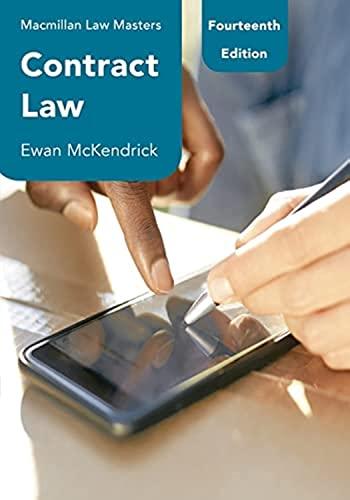Question
APPLICATION ESSAY: MASS SUPERVISION & PREDICTIVE ALGORITHMS ASSIGNMENT INSTRUCTIONS OVERVIEW The application essay assignments address topics integral to the criminal justice field and future criminal
APPLICATION ESSAY: MASS SUPERVISION & PREDICTIVE ALGORITHMS ASSIGNMENT INSTRUCTIONS OVERVIEW The application essay assignments address topics integral to the criminal justice field and future criminal justice professionals from a biblical worldview. As societal change compels criminal justice reform, studying the effects of reform related to justice from a biblical worldview is essential. Rethinking law enforcement procedures, criminal sentencing, and law are just a few of the topics examined. INSTRUCTIONS Horowitz, J. (2020). States Can Shorten Probation and Protect Public Safety. Retrieved from https://www.pewtrusts.org/en/research-and-analysis/reports/2020/12/states-can-shorten- probation-and-protect-public-safety Sawyer, W., & Wagner, P. (2022). Mass Incarceration: The Whole Pie 2022. Retrieved from https://www.prisonpolicy.org/reports/pie2022.html Earlier in this course, we discussed how to make a moral assessment of an action, particularly an individual's behavior. This assignment will analyze objective truths embedded in current criminal justice practices, specifically practices involving probation and parole. (A policy that unfairly harms individuals is not moral.) The United States criminal justice system has confined 2.3 million people (see Mass Incarceration: The Whole Pie 2022), precipitating the exploration of alternative methods to incarceration. Probation and parole, thought to be effective solutions to this problem, had their own punitive and, as we will explore, unconstitutional ramifications. Roughly half of the people who exit probation and parole exit successfully; however, many of those who are unsuccessful end up in prison or jail. In many states, probation and parole revocations are increasing incarceration rates (rather than helping to decrease mass incarceration). Contributing to these revocations are unrealistic conditions to probation, which could include fees for court, supervision, attorneys, drug testing, additional fines, and more. Long probation sentences can result in onerous debts. Some police departments and courts are turning to emerging technologies to assist them in decision-making. As you learned from the presentations in Learn, nearly 2% of the U.S. population is on parole or probation, and 30% of this group are African American (Horowitz, 2018). Since probation and parole are harming rather than helping individuals, new remedies are required. Emergent criminal justice research identifies problems emanating from probation and parole practices and offers several solutions. We will be looking at two of these study topics. Topic 1 - Mass Supervision - More than 4.6 million people in the United States are on probation and parole. Topic 2 - Predictive Algorithms - Police departments and court systems are turning to science and technology to predict criminal behavior when making sentencing recommendations and predicting crime, and recidivism, among other things.
CJUS 200 Page 2 of 2 For this assignment, discuss the issues unfolding from Topic 1 or Topic 2 (choose the topic that interests you most). The course materials in Learn for this week will help you understand the issues surrounding mass supervision and predictive algorithms. Refer to these materials for the source requirement. After viewing these materials in Learn and choosing a topic, answer the following questions. Topic 1 - Mass Supervision (Probation and Parole) 1. How has the use of probation and parole in today's criminal justice system changed from its original intent over time? 2. Evaluate the consequences of these practices in light of the moral or constitutional issues present. 3. Discuss whether you believe probation and parole are viable alternatives to incarceration in light of the consequences of these practices. - Or - Topic 2 - Predictive Algorithms 1. In light of the original intent of predictive policing algorithms, discuss the potential benefits of using these technologies. 2. Evaluate the consequences of these practices in light of the moral or constitutional issues present. 3. Discuss whether you believe predictive algorithms are viable tools for criminal justice materials, 1 citation will refer to the Bible, and the third may refer to a scholarly article published within the last five years.
Step by Step Solution
There are 3 Steps involved in it
Step: 1

Get Instant Access to Expert-Tailored Solutions
See step-by-step solutions with expert insights and AI powered tools for academic success
Step: 2

Step: 3

Ace Your Homework with AI
Get the answers you need in no time with our AI-driven, step-by-step assistance
Get Started


